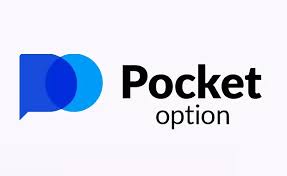Best Binary Options Brokers 2025: How to Choose the Top Regulated Platforms for Successful Trading
Traders aiming for consistent returns in 2025 must select a trusted provider from among the best binary options brokers 2025 that combine robust regulation, intuitive interfaces, and competitive payouts. This guide examines how binary options function, highlights top regulated platforms, compares features such as minimum deposits and payout rates, offers in-depth reviews of leading brokers, explores emerging market trends, outlines scam-avoidance tactics, and presents proven trading strategies. Whether you seek US-based exchanges or global providers regulated by CySEC, CFTC, MFSA, or IFMRRC, this article delivers a step-by-step framework to identify a platform that aligns with your risk tolerance, asset preferences, and technical needs.
Quick Comparison
- Regulatory Oversight: CFTC, CySEC, FCA, MFSA, IFMRRC
- Minimum Deposit: $5–$100 depending on broker
- Payout Range: 60%–98%
- Demo Accounts: Available on most platforms
- User Experience: Mobile-first, advanced charting
Top Regulated Brokers 2025
- Nadex — regulated by CFTC
- IQ Option — regulated by CySEC
- Deriv — regulated by MFSA & FSC
- Pocket Option — regulated by IFMRRC & MISA
- Quotex — oversight under VFSC
Regulation ensures platforms adhere to strict capital requirements, transparent pricing, and investor protection rules — a first line of defense against fraud.
What Are Binary Options and How Do They Work in 2025?
Binary options are financial derivatives that offer a fixed payout or nothing at all, based on the direction of an asset’s price movement within a set timeframe. This “all-or-nothing” mechanism simplifies payout calculations and risk management, making binary options ideal for traders seeking clear entry and exit points. For example, a trader predicting that EUR/USD will close above 1.1000 in one hour receives a predetermined return if correct, or loses the stake if incorrect. Understanding this structure lays the groundwork for choosing a platform regulated by authorities like CFTC or CySEC in 2025.
What Defines Binary Options Trading?
Binary options trading involves predicting whether an underlying asset’s price will rise ("call") or fall ("put") by a specified expiration time. This mechanism eliminates complex margin calculations and lets traders focus on directional forecasts. Contracts can range from 30-second turbo options to weekly derivatives, and each contract’s payout and loss are fixed at initiation. Recognizing this clarity in risk and reward helps new traders avoid volatility surprises and supports strategic planning in a regulated environment.
Which Assets Can You Trade with Binary Options?
Most platforms in 2025 enable binary options on a diverse asset suite, including major forex pairs (EUR/USD, GBP/JPY), leading cryptocurrencies (Bitcoin, Ethereum), global stock indices (S&P 500, FTSE 100), individual equities, and commodities like gold and oil. Some brokers now list tokenized real estate and synthetic assets, reflecting emerging market innovations. Asset variety enhances portfolio diversification, allowing traders to shift between forex volatility and crypto momentum based on market conditions and personal expertise.
What Are the Key Features of Binary Options Contracts?
- Expiration Time – the lifespan of the contract, from seconds to months.
- Strike Price – the threshold price level used to determine a winning or losing outcome.
- Payout Rate – the percentage return on investment if the contract expires in the money.
These features create a transparent framework for risk management. For instance, a 60-second option on crude oil with a strike at $70 that offers an 80% payout rate means a $100 stake yields $180 total if the prediction holds at expiration.
How Do US and EU Regulations Differ?
US regulation (CFTC) treats binary options as exchange-listed derivatives requiring futures commission merchant registration. The EU (CySEC) allows more contract flexibility and broader asset lists, but imposes investor compensation schemes up to €20,000. Choose based on your residency and asset needs.
Segregated client funds, AML controls, and regular audits translate into faster withdrawals and transparent dispute resolution.
How to Compare Top Brokers: Features, Deposits, and Payouts
Minimum Deposits
- IQ Option — $10
- Pocket Option — $50
- Nadex — $100
- Deriv — $5
- Quotex — $10
Payout Ranges
- IQ Option — 70%–92%
- Pocket Option — 75%–95%
- Nadex — 60%–85%
- Deriv — 70%–90%
- Quotex — 80%–98%
Platform Usability and Demo Accounts
Demo accounts build familiarity without risk. Look for intuitive layouts, multi-timeframe charts, and responsive mobile apps that support faster decisions during volatility.
Market Trends and Innovations for 2025
AI-driven signals, tokenized assets, and cross-border licensing are shaping the landscape. Compliance-first tech audits and better cybersecurity standards are becoming table stakes.
Risk Management and Scam Avoidance
Limit per-trade risk to 1–2%, diversify across uncorrelated assets, and withdraw profits regularly. Avoid platforms promising guaranteed returns or refusing withdrawals.
Strategies: From Beginner to Advanced
Beginners can start with trend-following and support/resistance. Advanced traders may use price action, correlation analysis, and AI-assisted optimizers to adapt to changing conditions.

